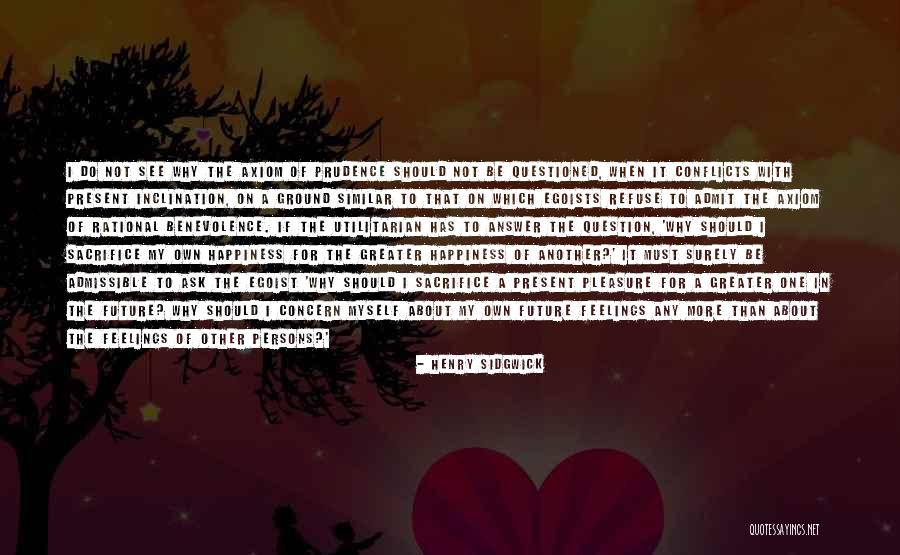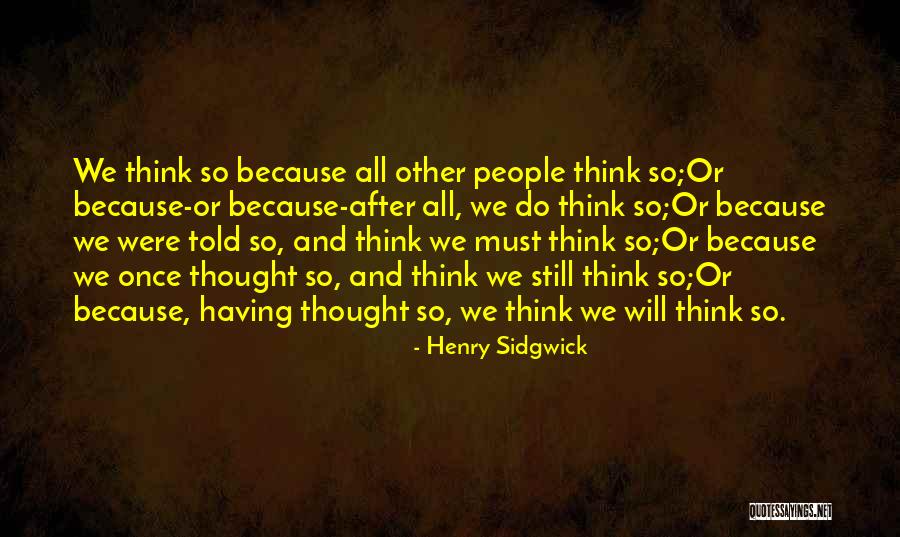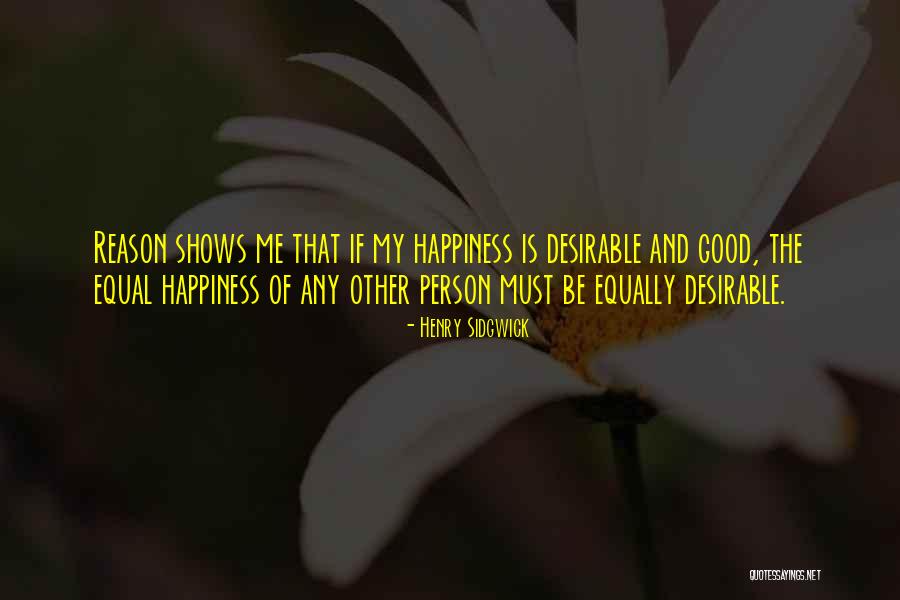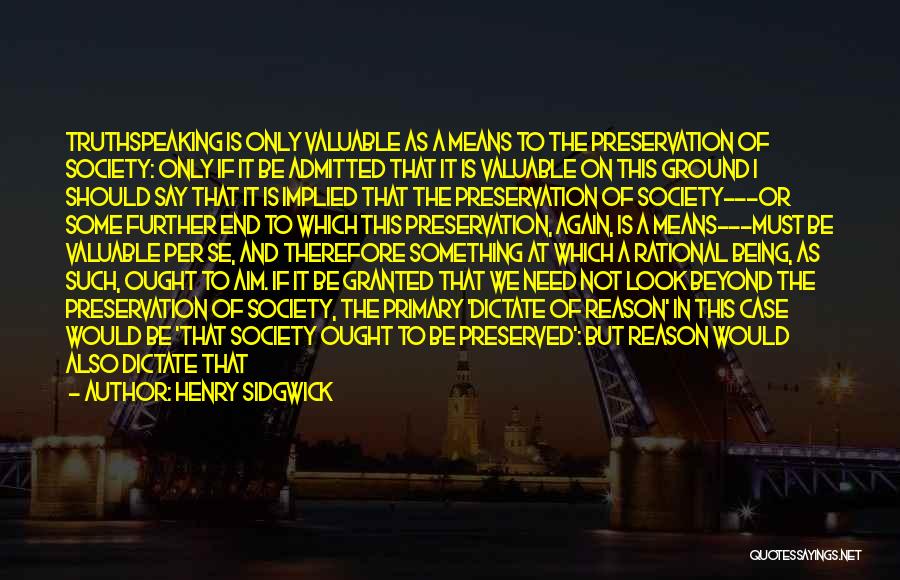Henry Sidgwick Quotes & Sayings
Enjoy the top 6 famous quotes, sayings and quotations by Henry Sidgwick.
Famous Quotes By Henry Sidgwick

I do not see why the axiom of Prudence should not be questioned, when it conflicts with present inclination, on a ground similar to that on which Egoists refuse to admit the axiom of Rational Benevolence. If the Utilitarian has to answer the question, 'Why should I sacrifice my own happiness for the greater happiness of another?' it must surely be admissible to ask the Egoist 'Why should I sacrifice a present pleasure for a greater one in the future? Why should I concern myself about my own future feelings any more than about the feelings of other persons?' — Henry Sidgwick

Society is like a schoolmaster who estimates boys according to their conformity to a standard that is easiest for running a school. — Henry Sidgwick

We think so because all other people think so;
Or because-or because-after all, we do think so;
Or because we were told so, and think we must think so;
Or because we once thought so, and think we still think so;
Or because, having thought so, we think we will think so. — Henry Sidgwick

One has to kill a few of one's natural selves to let the rest grow - a very painful slaughter of innocents. — Henry Sidgwick

Reason shows me that if my happiness is desirable and good, the equal happiness of any other person must be equally desirable. — Henry Sidgwick

Truthspeaking is only valuable as a means to the preservation of society: only if it be admitted that it is valuable on this ground I should say that it is implied that the preservation of society---or some further end to which this preservation, again, is a means---must be valuable per se, and therefore something at which a rational being, as such, ought to aim. If it be granted that we need not look beyond the preservation of society, the primary 'dictate of reason' in this case would be 'that society ought to be preserved': but reason would also dictate that truth ought to be spoken, so far as truthspeaking is recognised as the indispensable or fittest means to this end: and the notion "ought' as used in either dictate is that which I have been trying to make clear. — Henry Sidgwick





